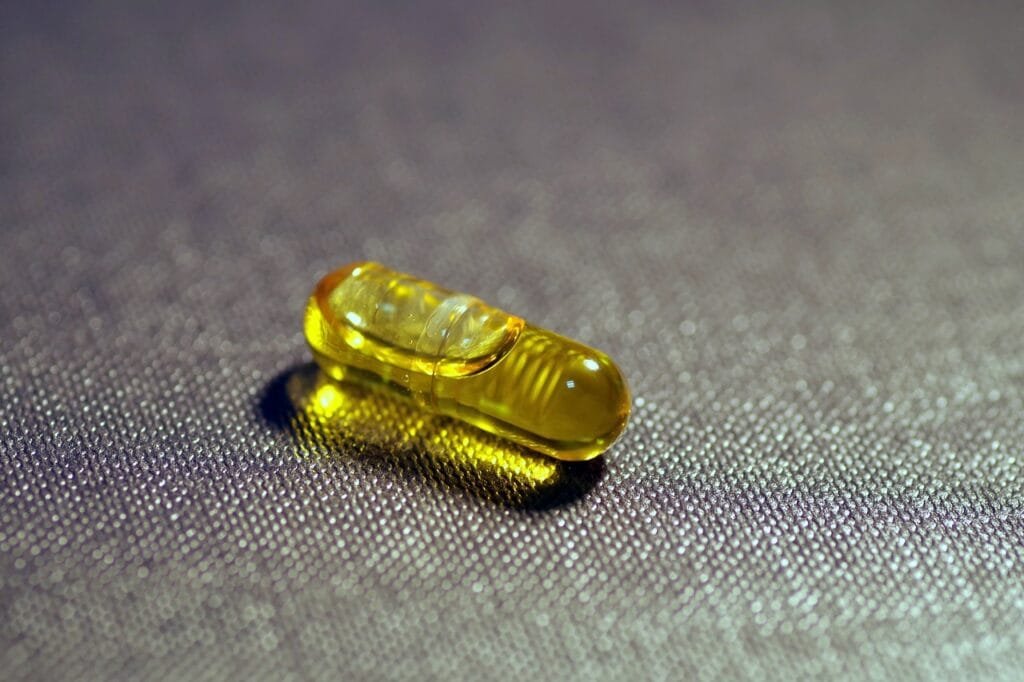Lactobacillus bulgaricus: A yogurt probiotic that strengthens the immune system
For centuries, yogurt has been a revered source of health and wellness. This dairy product, created by fermenting milk with lactic acid bacteria, has been a staple in many cultures. Among these bacteria, Lactobacillus bulgaricus and Streptococcus thermophilus stand out as safe probiotics, consumed by humanity for thousands of years. This historical context not only connects us to a rich tradition of health but also underscores the fact that not all bacteria are harmful.
This realization came from Elie Metchnikoff, an investigator often credited with being the progenitor of probiotics. Metchnikoff, a Russian scientist, was awarded the Nobel Prize in 1908 for his work on phagocytosis, an essential immune response mechanism. He is also known for his research on the health benefits of lactic acid bacteria, particularly in fermented foods like yogurt. He postulated that some bacteria are beneficial for their host. By colonizing the gut, they help with our gastrointestinal environment and may even delay senility. Later, the term probiotics was added to tag a growing market that has become a supplement super industry.
Most members of the probiotic group are lactic acid bacteria, and there’s an extensive list of Lactobacilli, Bifidobacterium strains, and even non-pathogenic Escherichia coli known as strain Nissle 1917. This article will review the health contributions we can seize from one of the most common strains used to ferment milk into yogurt: Lactobacillus bulgaricus. After reading, you will understand why doctors recommend probiotics, whether you have gastrointestinal complaints or not.

What everyone should know about Lactobacillus bulgaricus
One of the reasons why Elie Metchnikoff postulated that some bacteria are beneficial for us had to do with yogurt, which was fermented by lactic acid bacteria and turned out to be beneficial for regular consumers. He attributed the longevity of Bulgarians to their consumption of yogurt enriched with lactobacilli, and these claims attracted the attention and made the yogurt market grow at the beginning of the Twentieth Century. He devoted the last decade of his life to promoting lactobacillus consumption in food products after being awarded a Nobel prize in 1908 for discovering phagocytosis as an essential immune response mechanism.
However, another Bulgarian graduate student isolated and characterized the lactobacilli mentioned by Metchnikoff. His name was Grigoroff, and the bacteria he found in Bulgarian yogurt received the name Bacillus A, but it was afterward termed Lactobacillus bulgaricus. Naturally, the name bulgaricus comes from Bulgarian yogurt, which was the object of study in his research. However, Lactobacillus bulgaricus can be found worldwide in fermented milk products, with a highlight in Asian countries such as China and Mongolia (1).
Benefits and applications of Lactobacillus bulgaricus
Back in the day of the birth of probiotics as a source of health, Elie Metchnikoff mentioned that aging is triggered by protein putrefaction in the gut. He said that lactic acid bacteria inhibit such putrefaction and reverse aging. He was so devoted to this idea that he decided to drink sour milk fermented by lactobacilli daily until he died in 1916. His concept of protein putrefaction was not accurate, but scientific findings showed that Lactobacillus bulgaricus and similar probiotics indeed have a benefit by different mechanisms.
In the following sections, we will refer to Lactobacillus bulgaricus as L. bulgaricus for simplicity and address the most important health benefits described in the scientific literature one by one.
L. bulgaricus improves immunity cell function from its place in the gut
Probiotics are popular in the supplement market because they work beyond the gut without side effects. The intestines are linked to an extensive tissue network known as Gut-Associated Lymphoid Tissue, or GALT. This part of the immune system is specifically located in the gut and is responsible for monitoring and responding to potential threats from the gut contents. Gut contents have indirect contact with immune cells, and proteins in the cell wall of healthy bacteria such as L. bulgaricus can change how immune cells work throughout the body.
Studies have shown that L. bulgaricus has the potential to significantly boost immunity. It can increase the percentage of NK cells in the body, particularly in elderly patients. These NK cells, known as natural killers, form a crucial part of the body’s defense system against pathogenic bacteria. The increase in their number after consuming probiotics, along with the rise in the concentration of antimicrobial peptides in immune cells, suggests that L. bulgaricus may also reduce the risk of common illnesses. This strain’s ability to stimulate the immune system surpasses that of other lactic acid bacteria, offering hope for improved health (2, 3).
L. bulgaricus has antimicrobial effects on H. pylori and other pathogenic bacteria
Nowadays, people try to avoid chemical preservatives, and health-conscious individuals usually choose organic foods. These chemical preservatives are considered safe in the short term, but their long-term effects are unknown. That’s why natural antimicrobial substances such as those produced by L. bulgaricus are on the rise. According to studies, L. bulgaricus forms a bioprotective film that increases the shelf life of food products without using chemical preservatives (4).
Besides extending shelf life, L. bulgaricus can also work inside the body, modulating the gut microbiota with its antibacterial capacity. For instance, it produces lactic acid, which causes a drop in gut pH that pathogenic bacteria do not tolerate well. Additionally, the antibacterial substances, known as bacteriocins, inhibit their growth. That’s why yogurt enriched with lactobacilli does not spoil as fast, and studies show that strains such as L. bulgaricus and Streptococcus thermophilus inhibit microorganisms such as Listeria monocytogenes and Escherichia coli (5).
Among the most promising clinical applications, L. bulgaricus was tested in patients with H. pylori infection. This problem is sometimes difficult to eradicate and requires multiple antibiotics simultaneously. This triple therapy regimen can be complemented with a combination of L. bulgaricus and Streptococcus thermophilus for better results. The addition not only prevented antibiotic-associated diarrhea but also improved the eradication rate of the bacteria (6).
L. bulgaricus acts as a detox agent against lead poisoning
Lead is a dangerous type of metal poisoning triggered by lead accumulation, which often happens over months or years. In the long term, lead poisoning can be potentially life-threatening, with a risk of renal failure and severe liver damage. Studies show that L. bulgaricus is highly resistant to lead, and the strain in dairy products has a protective effect on acute toxicity, as reported in mice.
In vivo, strain KLDS1.0207 of L. bulgaricus relieved renal damage, improved the antioxidant index, and protected the liver and kidneys, reducing mortality. However, these are still pre-clinical studies and research in human subjects is required before considering this a part of the treatment of lead poisoning (7).
L. bulgaricus can relieve lactose intolerance
Lactose is a type of sugar found in milk. It is made up of glucose and galactose. People with lactose intolerance do not have an enzyme that breaks down lactose into its main components in their system. Thus, lactose stays in the gut instead of being absorbed and causes diarrhea, abdominal discomfort, and flatulence when the patient consumes milk and dairy. However, yogurt is less likely to cause problems in lactose-intolerant patients, and L. bulgaricus is the reason why.
L. bulgaricus is a lactic acid bacteria that ferments milk and breaks down its sugar and lactose. It has the appropriate enzyme for this, beta-galactosidase. Thus, numerous studies in animals and humans show how this strain improves lactose digestion and reduces intolerance symptoms. However, you must consume yogurt with live cultures to reap the benefits. Ensure it is not pasteurized yogurt, as this type does not have the bacteria to improve lactose intolerance (8).
Some strains of L. bulgaricus have additional health effects, such as producing folic acid
There are many lactobacilli, and L. bulgaricus is only one species. However, there are dozens of variants, each with particular health effects. The above are common to most strains of L. bulgaricus, but others offer specific benefits.
For instance, strain CRL 871 is known to produce folate. Consuming this strain of L. bulgaricus will be an easy alternative to folic acid fortification. Other strains, such as GB N1, have a hypolipidemic effect, which means they lower cholesterol levels and help protect the cardiovascular system. Some strains, such as DWT1, inhibit tumor growth and can be used to prevent some types of cancer. Thus, if you find a specific strain of L. bulgaricus in your yogurt or probiotic supplement, it may have a particular effect besides the one mentioned at the beginning of this list.
See YouTube Video below.
Conclusion and takeout
So, in the end, Lactobacillus bulgaricus is not just another bacteria in the making of yogurt but a very powerful probiotic with many health benefits. It has been studied for more than a century, from the days of Metchnikoff to modern research, and its applications include improving gut health, fighting harmful bacteria, boosting immunity, and even helping with detoxification. Even lactose intolerance, which many people struggle with, can be eased with the help of this probiotic strain. And there are even more strain-specific benefits that depend on the subtype or probiotic variant, which may produce folic acid or lower cholesterol levels.
But, of course, probiotics are not magic, and it doesn’t mean eating yogurt will cure every health problem. Probiotics work better when combined with a healthy diet and lifestyle. Also, not every yogurt will have live L. bulgaricus since pasteurization can kill the bacteria, so always check the label if you’re looking for probiotic benefits. The supplement industry has grown a lot around probiotics, and L. bulgaricus is one of the most common, but choosing high-quality sources is still important.
Ultimately, we should see L. bulgaricus as part of a bigger picture, a small but significant ally for our health. Whether in traditional fermented foods or as part of modern probiotic supplements, it continues to prove its worth.
References:
- Grigoroff, Stamen. Etude sur le lait fermenté comestible: le” Kissélo-mléko” de Bulgarie. 1905.
- Moro-García, M. A., Alonso-Arias, R., Baltadjieva, M., Fernández Benítez, C., Fernández Barrial, M. A., Díaz Ruisánchez, E., … & López-Larrea, C. (2013). Oral supplementation with Lactobacillus delbrueckii subsp. bulgaricus 8481 enhances systemic immunity in elderly subjects. Age, 35, 1311-1326.
- Makino, Seiya, et al. “Reducing the risk of infection in the elderly by dietary intake of yoghurt fermented with Lactobacillus delbrueckii ssp. bulgaricus OLL1073R-1.” British Journal of Nutrition 104.7 (2010): 998-1006.
- Ross, R. P., Morgan, S., & Hill, C. (2002). Preservation and fermentation: past, present and future. International journal of food microbiology, 79(1-2), 3-16.
- Akpinar, A., Yerlikaya, O., & Kiliç, S. (2011). Antimicrobial activity and antibiotic resistance of Lactobacillus delbrueckii ssp. bulgaricus and Streptococcus thermophilus strains isolated from Turkish homemade yoghurts. African Journal of Microbiology Research, 5(6), 675-682.
- Tongtawee, T., Dechsukhum, C., Leeanansaksiri, W., Kaewpitoon, S., Kaewpitoon, N., Loyd, R. A., … & Panpimanmas, S. (2015). Improved Helicobacter pylori eradication rate of tailored triple therapy by adding Lactobacillus delbrueckii and Streptococcus thermophilus in Northeast region of Thailand: a prospective randomized controlled clinical trial. Gastroenterology Research and Practice, 2015(1), 518018.
- Li, B., Jin, D., Yu, S., Etareri Evivie, S., Muhammad, Z., Huo, G., & Liu, F. (2017). In vitro and in vivo evaluation of Lactobacillus delbrueckii subsp. bulgaricus KLDS1. 0207 for the alleviative effect on lead toxicity. Nutrients, 9(8), 845.
- de Vrese, M., Stegelmann, A., Richter, B., Fenselau, S., Laue, C., & Schrezenmeir, J. (2001). Probiotics—compensation for lactase insufficiency. The American journal of clinical nutrition, 73(2), 421s-429s.
- Oyeniran, A., Gyawali, R., Aljaloud, S. O., Krastanov, A., & Ibrahim, S. A. (2020). Probiotic characteristics and health benefits of the yogurt bacterium Lactobacillus delbrueckii sp. bulgaricus. In Current issues and challenges in the dairy industry. IntechOpen.
See Nutrition Articles, click here.




